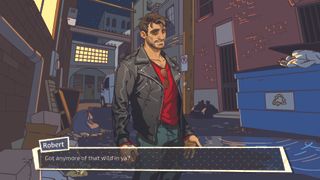How much say do developers have in their schedules?
How crunch happens.

I'm talking to Jake Birkett of Grey Alien Games, developer of Regency Solitaire and upcoming card-based RPG Shadowhand. "It occurred the day after I had done some kind of crunch until 5 am," he says. "I got up in the morning and crawled under my desk to switch the plugs on, and my back went out. I'm just in my early 40s now."
In a blog post from 2015, creative director Clint Hocking said the 80-hour weeks he worked during the development of Splinter Cell: Chaos Theory "gave me brain damage". Whether or not crunch time is necessary to release a game ‘on time' is a perennial topic in game development circles. The web connecting contractors, publishers, platform holders and developers that determines how release dates are decided upon, and whether they actually get met, is obscured behind a cloud of non-disclosure agreements. When you throw the possibility of community-enraging delays into this potent mix, it quickly becomes apparent how developing a schedule that allows you to make an excellent game, while taking care of yourself and launching in a reasonable period of time, is far more complicated than it might initially appear.
Since release dates are usually set far in advance of a game's completion, developers are always trying to find more efficient ways to account for hurdles that pop up along the way. In the case of Dream Daddy, director Tyler Hutchison developed a compiler that, no matter what changes were made during the game's dev cycle, would automatically plug all of the elements of the visual novel in their proper places upon its completion. However, despite this tool, the team still worked 14-16 hour days leading up to launch. "It was a team of all indie developer people so everyone was just like, ‘Nah, this is fine! We'll just make some more coffee and keep going!'" Hutchison says. "Everyone was really gung-ho, and, of course, that completely exhausted us." Dream Daddy ended up being delayed by six days, but after the resulting exhaustion, the team still worked overtime. "All of us were so aware of it," says Hutchison. "To be like, 'Okay, we're not gonna do this again!' And then we'd send a build to QA at 4 am and just be like, ‘Fuck! We did it again!'

Tanya X Short, co-founder of Moon Hunters developer Kitfox Games, explained the phenomenon of consistent overwork thusly: "Crunching can feel amazing. You feel more productive, even when you're not!
"Every dev dreads disappointing their players, but, honestly, if you have to choose between disappointing them with a delay or disappointing them with a buggy sub-par game experience, I'll pick the delay every time."
Regardless of developer size, it seems the conversation of how to mitigate crunch when it feels necessary regularly occupies the industry. Bill Gardner, lead designer on BioShock, and cofounder of Perception developer The Deep End Games, recalls Irrational Games occasionally forcing people to leave the building so that they could get some much-needed rest. "The sad reality is every place I've ever been to, every project I've ever worked on, I've never spoken to anyone who knows how to avoid it," he says. "In an ideal industry, that wouldn't be a thing, but games are incredibly complex. No amount of planning, or foresight, or arcane ritual is going to allow developers to anticipate the increasing complexity of the things we make."
Between a rock and a hard place
As demoralising as a delay can be for both developers and their audiences, that extra time could mean yet another developer won't get burned out of the industry they love. In the case of BioShock Infinite, executive VP of development Rod Fergusson felt even a month-long delay could be the difference between releasing a good title, or a great one. The risk of a delay isn't trivial, either. "A delay can be completely devastating," Paul Kilduff-Taylor cofounder of Frozen Synapse developer Mode 7 Games, tells me. "You can lose money you've already committed to advertising; you can lose a promotional slot with a platform holder; you can get into cashflow difficulties because you have to wait to release the game: delays can potentially sink a company if it isn't healthy to begin with."
The biggest gaming news, reviews and hardware deals
Keep up to date with the most important stories and the best deals, as picked by the PC Gamer team.

Which again brings me to crunch: the labour practice everyone bemoans, but few manage to eliminate. When a schedule looks inadequate, and a milestone is looming large, crunch often seems like the only option left.
"It can be very hard just to keep your normal everyday life going," Helen Carmichael of Grey Alien Games says, "But to be productive, effective worker, you still need to eat, sleep and wash. All of those things are really positive and important, and it's easy to let them slide."
Most Popular

